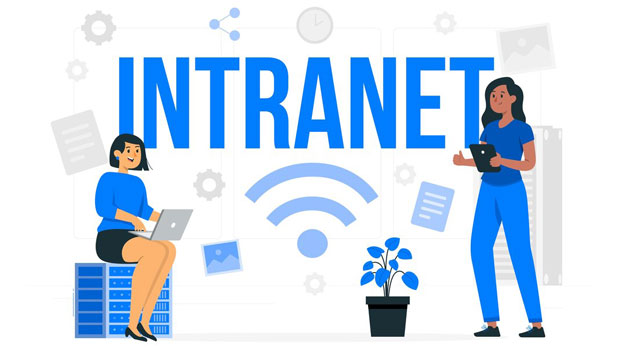In today's digital world, proxy services play a critical role in ensuring privacy, security, and performance. For users of automated tools, having the right proxy service is essential for maintaining efficiency, speed, and data integrity. Among the numerous options, PYPROXY and Pirate Proxies stand out due to their distinct features. This article will provide a comprehensive analysis of both services, focusing on how well they integrate with automation tools. We will compare their ease of use, customization options, support for automation workflows, and other key factors that could influence a user's decision. Introduction to Proxy Services in AutomationAutomated tools, such as web scrapers, bots, and other processes that require data extraction or interaction with online platforms, often face challenges related to IP blocking, speed throttling, or geolocation restrictions. Proxies serve as intermediaries to mask the user's real IP address and allow access to restricted resources without revealing the user's identity. Integration with automation tools is crucial for ensuring that proxies are easy to manage, switch, and scale based on the task requirements.Two popular proxy options for automation are PyProxy and Pirate Proxies. Both offer a range of features that could enhance the efficiency of automated workflows, but they differ significantly in terms of ease of integration, support for automation tools, and performance.What is PyProxy?PyProxy is a Python-based proxy manager that allows users to easily manage and rotate proxies within their automation scripts. It is a popular choice among developers due to its flexibility and ease of use. PyProxy provides a simple API that integrates directly with Python scripts, making it especially useful for automation tasks that require proxy rotation.Key Features of PyProxy:- Simple API: The Python API allows developers to integrate PyProxy into their automation scripts seamlessly. The proxy management, including rotating and switching proxies, is handled within a few lines of code.- Proxy Rotation: PyProxy supports rotating proxies at regular intervals or after each request, reducing the chances of IP blocks.- Customization: Users can configure the proxy rotation and other settings as per their specific needs, making it ideal for complex automation tasks.Ease of Integration:PyProxy's biggest strength lies in its ease of integration with Python-based automation tools. Since Python is one of the most popular languages for automation, PyProxy is often the go-to choice for Python developers. Its flexibility allows it to work seamlessly with tools like Scrapy, Selenium, and BeautifulSoup, all of which are commonly used for web scraping and automated browsing.Limitations:One limitation of PyProxy is that it is heavily reliant on Python, which may not be ideal for users who use other programming languages. Additionally, setting up PyProxy might require some technical knowledge, as it involves configuring API calls and managing proxies manually.What is Pirate Proxies?Pirate Proxies, on the other hand, offers a broader range of proxies tailored to various use cases, including web scraping, social media automation, and anonymous browsing. While Pirate Proxies is not Python-specific, it provides an easy-to-use interface and integration support for a variety of automation tools.Key Features of Pirate Proxies:- Multi-Language Support: Pirate Proxies supports a wide array of programming languages, including Python, Java, and Node.js, making it suitable for developers working in different ecosystems.- Rotating Proxy Service: Pirate Proxies provides a large pool of rotating proxies that can be used for automation tasks. These proxies are rotated automatically at regular intervals, reducing the risk of IP bans.- User-Friendly Interface: Unlike PyProxy, which requires script-based management, Pirate Proxies offers a more straightforward web interface for managing proxies, making it a good choice for users who are less technically inclined.Ease of Integration:Pirate Proxies is designed to work with a wide range of automation tools, which makes it more versatile than PyProxy. Users can integrate Pirate Proxies with web scraping tools, bots, and other automation software through simple configuration files or direct API calls. This multi-language support and user-friendly interface make it an excellent option for users who need an out-of-the-box solution.Limitations:One downside of Pirate Proxies is that it may not offer as much fine-grained control over proxy rotation and configuration as PyProxy does. While it’s easier to use, some advanced users may find it lacks the level of customization that is available in Python-based solutions like PyProxy.Comparing PyProxy and Pirate Proxies for Automation1. Integration Ease:For automation developers, PyProxy’s integration is smoother if you are working within the Python ecosystem. It allows for direct control over proxy management through scripts, which is crucial for advanced users who require fine-grained control over proxy rotation and request handling. However, this might be a disadvantage for users working in other languages or those who do not want to write complex code.Pirate Proxies, in contrast, provides multi-language support and a simpler interface for managing proxies. This makes it easier for users from different backgrounds to integrate with their automation tools. The web interface also makes it easy for non-technical users to manage proxies without needing to dive deep into the code.2. Proxy Pool and Rotation:Both PyProxy and Pirate Proxies offer proxy rotation services, but PyProxy excels in customization. With PyProxy, users can configure the exact rotation frequency, the number of proxies to rotate, and the proxies' geographical locations. This flexibility is valuable for advanced scraping tasks where control over proxy usage is crucial.Pirate Proxies offers a good proxy rotation service, but the customization options are somewhat limited compared to PyProxy. For most users, however, the default rotation settings are sufficient for everyday use. Its large proxy pool ensures a high degree of anonymity and reliability for automation workflows.3. Performance and Reliability:Both services perform well in terms of speed and reliability, but PyProxy may offer better performance in environments where maximum control over proxies is required. Since PyProxy is script-based, it allows users to manage proxy use more efficiently, optimizing performance based on the specific needs of the automation task.Pirate Proxies, with its broader proxy pool, ensures that users can access a diverse range of IP addresses, which may be important for users involved in high-volume scraping or automation tasks. However, the ease of use can sometimes come at the cost of performance optimization for more complex tasks.When choosing between PyProxy and Pirate Proxies for automation tasks, it ultimately depends on the user’s needs and technical capabilities. PyProxy is an excellent choice for developers who want full control over proxy rotation and integration within Python-based tools. Its flexibility and script-based approach make it ideal for advanced users looking for deep customization.Pirate Proxies, on the other hand, offers a more accessible solution for users across different programming languages. It’s perfect for those who need a simple, reliable proxy service without the need for complex setup or deep technical knowledge. For users who prioritize ease of use and support for multiple languages, Pirate Proxies is a solid option.Ultimately, the best choice will depend on your specific requirements, technical expertise, and the complexity of the automation workflows you need to implement.
Oct 20, 2025


































































